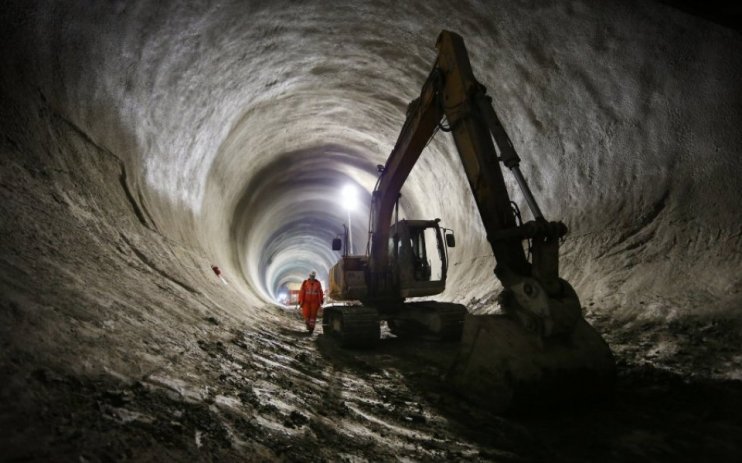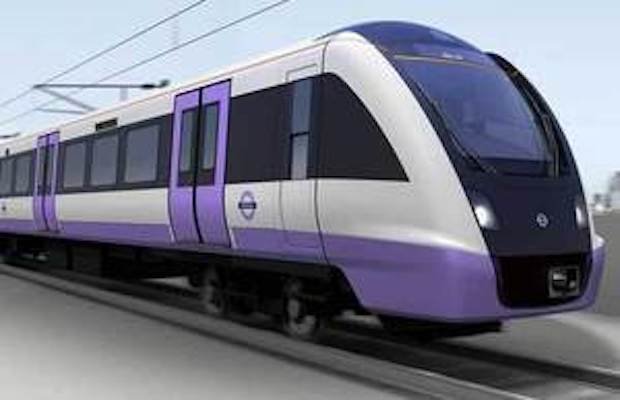MPs blast Crossrail bosses’ huge bonuses as £17.6bn Elizabeth Line costs set to increase

Crossrail bosses pocketed huge performance bonuses even as London’s huge rail network programme fell disastrously off track, MPs revealed today, warning that project costs could continue to rise.
The £17.6bn Elizabeth Line was originally due to open in December 2018 but management recently admitted large swathes of track may not be operational until at least March 2021 – two years and four months behind schedule.
Read more: Crossrail contractors could ask for even more money to meet new deadline
Despite this, former chief executive Andrew Wolstenholme received a £481,000 bonus for performance in 2015-16 and £160,000 in 2016-17, the Public Accounts Committee said today.
The Department for Transport (DfT) told MPs that remuneration levels should match execs’ skills and experience, but the committee blasted the department for a lack of oversight.
“The Crossrail Ltd Executive were paid large salaries and performance bonuses for managing a programme that, it is now clear, was not delivered successfully,” today’s review found.
“Sponsors did not provide enough oversight of, and challenge to, remuneration decisions made by Crossrail.”
MPs also warned that “costs for the programme are likely to continue to climb” despite the current £17.6bn budget.
“The final cost still remains unknown,” MPs said. “Crossrail Ltd has so far failed to understand the complexity and risks involved in the programme, failed in its management of its main contractors and failed to integrate different strands of the programme successfully. “
A DfT spokesperson insisted the department “consistently challenged” Crossrail’s leadership on the delivery of the project.
MPs warned that a huge amount of work remains to be done to make Crossrail operational even by its vastly delayed new timescale.
“There remains a great deal of work to do and risks to manage, including finishing development of the software on board the trains, completing fit out of the stations, finishing installation of the signalling systems and testing that the trains can operate safely through the tunnels and stations,” the PAC said.

Politicans called the report another blow to Crossrail’s sponsors, and questioned why Crossrail management and Transport for London (TfL) were “so unaware” of the project’s delays.
“This report is another damning indictment for all stakeholders involved in Crossrail,” Caroline Pidgeon, deputy chair of the London Assembly Transport Committee, said.
“Yet another scrutiny body has echoed the same failings we found. It begs the question why Crossrail and Transport for London were so unaware of the stark failings of the project.
“These failings are ultimately the cause of an increased cost to the public purse and the project being delayed.”
The railway, which will stretch from Abbey Wood in the east to Heathrow in the west, was originally delayed until 2019.
However, the project is now unlikely to open before 2020 and could even open as late as 2021.
Meanwhile, costs have ballooned, with the Greater London Authority handing the project a £1.4bn bailout to keep it alive.
A report by London Assembly warned that costs may increase further, from the original £14.8bn budget all the way to £18.7bn taking into account the costs of procurement and trains.
“Despite the perilous financial situation and ongoing project issues, it is utterly dismaying to know Crossrail executives were still being paid huge bonuses,” Pidgeon added.
“Our report recommended Crossrail revisit the renumeration of chief executives but most importantly, to make sure the right people with the right skills are in the right jobs.”
Crossrail boss Mark Wild replaced Simon Wright as chief executive of the project in late 2018 on a salary of £415,000.
TfL said at the time that Wright’s departure was planned. Wright had replaced Wolstenholme in March 2018.
The PAC review also accused Crossrail of failing to manage contractors adequately, despite programme partners Bechtel and Transcend having remits to do so.
Read more: With Crossrail at a standstill, what other London transport projects are on hold?
“The former chair placed some blame for performance falling behind schedule at the feet of some of the key contractors who had been ‘causing problems’,” the report said.
“But it was Crossrail Ltd’s job to manage its contractors. Crossrail Ltd failed to understand the extent to which contractors’ levels of productivity were diverging significantly and repeatedly from its expectations and effectively manage the consequences of this on the programme.”
“When problems became clear the Department acted swiftly and effectively, changing the leadership of the Board and strengthening governance structures,” DfT’s spokesperson said.
“The new Crossrail Ltd management team has now produced a new plan to open the railway, and the Department and TfL will continue to scrutinise progress to ensure this happens as soon as possible.”